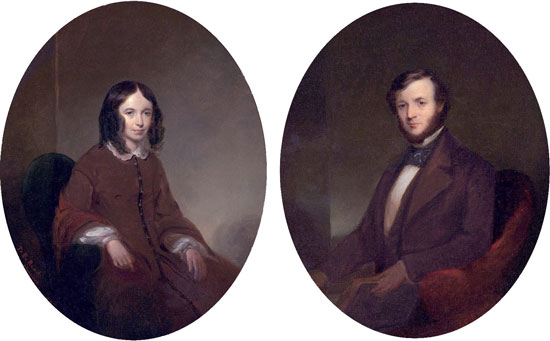To be a poet—at least a very good poet—one has to be more than a little “disturbed,” or so it would seem. After all, the biographies of a number of the greats form a litany of dysfunction and instability. But such is not the case when you consider the lives of Victorian poets Robert and Elizabeth Browning.

The casual observer might be skeptical at first given that the couple eloped because Elizabeth could not secure the blessing of her father. Robert was six years younger than Elizabeth and had significantly less income. Though sickly and frail, Elizabeth upstaged Robert in poetic reputation. Robert revealed to her that he had fallen in love with her poems before he met and fell in love with her! Nevertheless, their romance proved to be the stuff of legend—as enduring as their pens prophesied it would be. Despite their love’s somewhat difficult beginnings, the couples’ biography bears the scrutiny of curious students much better than the scandal-ridden profiles of a number of their contemporaries.
The Brownings’ poems reflect the Victorian culture into which they were born, with its strict adherence to poetic forms and strong emphasis on morality. However, their verse is not without innovation and drama. In the following two lines, from her most famous poem, “Sonnet 43” in Sonnets from the Portuguese, Elizabeth exalts both purity and faithfulness in love:
I love thee purely, . . .
I shall but love thee better after death.
Robert embraces a fortitude and optimism towards death that resonates with the Christian’s confident hope in a future resurrection. He ends his poem “Epilogue” with this conviction:
Never doubted clouds would break,
Never dreamed, though right were worsted,
wrong would triumph,
Held we fall to rise, are baffled to fight better,
Sleep to wake.
With passion and skill equal to that of their more controversial counterparts, the writings of the Brownings are a worthy and relatively wholesome consideration for young students of poetry. They bring a God-fearing steadfastness to the checkered world of troubled artists. A welcome and colorful study, they and their works await discovery by a new generation.
Links for further study:
- Biography and Poems of Elizabeth Barrett Browning
- “How Do I Love Thee?” (Sonnet 43) and other selected poems
- Biography of Robert Browning
- Browning’s Shorter Poems from Project Gutenberg
Leave a Reply